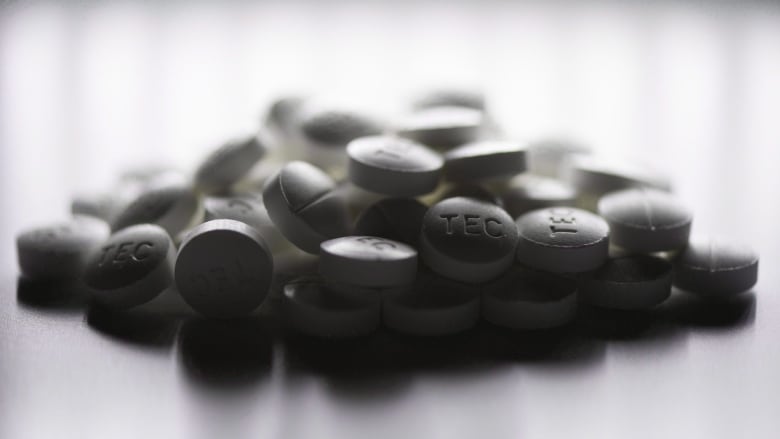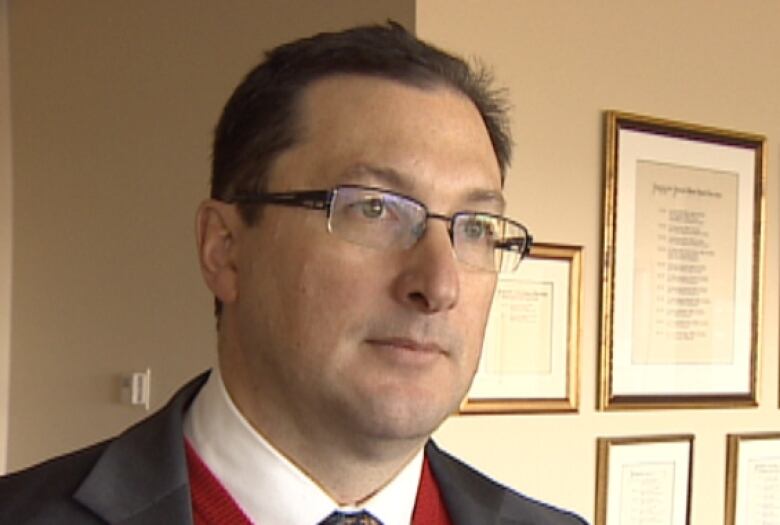Nova Scotia doctors told to dramatically reduce opioid prescriptions
The Nova Scotia College of Physicians and Surgeons endorses new guidelines to cut opioid use

The Nova Scotia College of Physicians and Surgeons is recommending doctors cut in half how much opioids they prescribe for chronic pain.
The college has endorsed new guidelines from the U.S. Centers for Disease Control and Prevention for pain outside treatment of active cancer or palliative care.
- N.S. physician calls on 'weak doctors' to stop over-prescribing fentanyl
- Nova Scotia drug monitoring program 'not working the way it was intended'
Currently, Canadian guidelines state the threshold dose for chronic pain is 200 milligrams of morphine or its equivalent per day.
Now, Nova Scotia doctors are being told opioids should not be the first method of treatment for chronic pain, and to use "caution" when prescribing any dose in excess of 50 milligrams per day. The CDC also recommends doses above 90 milligrams a day should be avoided.
"That is a dramatic reduction in the acceptable range of dosing of opioids," said Dr. Gus Grant, CEO of the Nova Scotia College of Physicians and Surgeons.
"That reduction is based on the developing evidence of the risks and harms associated with higher doses."

Grant said opioid prescription doses have increased over the years, and there is a large number of patients currently on doses higher than 200 milligrams per day.
"It's a very difficult situation for a physician to sit across from a patient who's in pain, who's suffering, who's not enjoying life as he or she should," he said.
"Physicians are hard-wired to help people, and for a long time medicine has been under the impression that increasing doses might help these patients, but the evidence is not there any more."
Grant said that according to the CDC the evidence suggests higher doses of opioids can lead to more harm than good. The college's intent, he said, is for doctors to scale back how many milligrams of opioids is prescribed per day and promote non-medicinal forms of treatment.
'People who are addictive are creative'
Direction 180 in Halifax is a community-based methadone clinic that provides services for people addicted to opioids.
Executive director Cindy MacIsaac welcomed the new guidelines, and said the changes will likely promote a more holistic approach to treating pain. But, she warns that doctors should be cautious when scaling back doses.
"People who are addictive are creative," said MacIsaac. "They have a need, and it's a health issue. If one door closes, they're going to look for another door."
'A pill town'
MacIsaac said as prescription doses decrease, treatment spaces for addictions and chronic pain need to be made available.
"We've always been a pill town," said MacIsaac. "While we tighten up these controls, we've got to be aware that a reaction to that could mean that heroin then becomes available on our streets."
MacIsaac said the changes will likely help keep more opiates off the streets. She said she hopes doctors will take a "humane approach" when weaning opioid users.












_(720p).jpg)


 OFFICIAL HD MUSIC VIDEO.jpg)
.jpg)



























































































